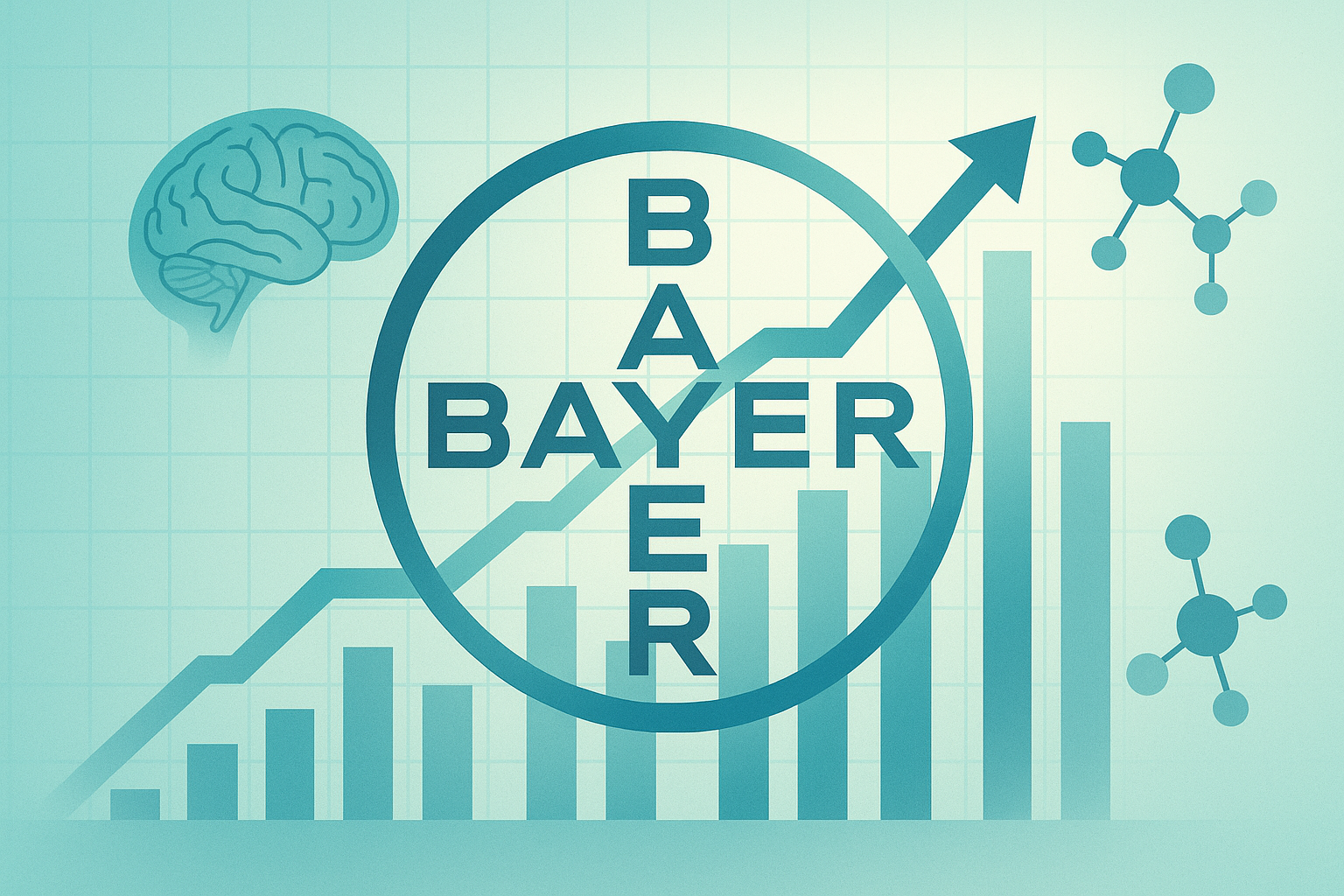Bayer stock jump 9% as stroke drug trial revives confidence in pipeline

Bayer shares surged on Monday after the company reported encouraging late-stage clinical trial results for its experimental cardiovascular drug asundexian, offering a rare boost for a pharmaceutical division that has struggled with setbacks and mounting litigation costs.
The stock rose more than 9% and traded at €30.30—its highest level in over a week.
Positive phase III results after earlier failure
The German group said on Sunday that its Phase III OCEANIC-STROKE trial met its primary objective, marking a significant turnaround for a drug candidate that had suffered a major blow two years earlier.
The study showed that a once-daily 50-milligram dose of asundexian, administered alongside antiplatelet therapy, significantly reduced the risk of ischemic stroke in patients who had previously experienced a stroke or similar blockage in brain blood vessels.
Importantly, the drug achieved this without increasing the risk of major bleeding, a common concern associated with existing blood thinners.
Asundexian works by blocking Factor XIa, a protein that contributes to blood clot formation.
Bayer said detailed results from the trial will be presented at an upcoming scientific congress, and that it plans to begin discussions with global health authorities in preparation for marketing authorisation submissions.
The positive outcome contrasts sharply with the drug’s earlier setback in late 2023, when a separate Phase III trial in patients with atrial fibrillation, who were at risk of stroke but had not yet had one, failed to demonstrate efficacy.
That disappointment forced Bayer to halt part of its development programme and was widely viewed as a significant hit to the company’s hopes of reigniting pharmaceutical growth.
Strategic lift for CEO amid overhaul and legal burdens
The new clinical results offer a much-needed success for Chief Executive Bill Anderson, who is in the midst of restructuring management and working to reduce the group’s substantial debt burden.
Bayer continues to wrestle with costly litigation, particularly in the United States, tied to allegations involving its Roundup weedkiller and polychlorinated biphenyls (PCBs).
Last quarter, the company said these legal challenges added €1.06 billion in charges to earnings.
Against that backdrop, progress in Bayer’s drug pipeline is increasingly crucial.
A successful approval and launch of asundexian for secondary stroke prevention could help stabilise investor sentiment and support the pharmaceutical division’s longer-term revenue prospects.
Market reaction and analyst view
Market reaction to the announcement was swift. Shares rose as much as 9.84% to €30.30, with analysts at JPMorgan calling the results “favourable,” particularly the finding of no increased major bleeding risk.
However, they also urged caution, noting that detailed data and competitor results would ultimately determine the drug’s potential in the secondary stroke market, which they previously estimated at around €3 billion.
While the latest findings do not erase the impact of past trial failures, they represent an important recovery for Bayer’s late-stage pipeline.
Investors and industry analysts will now watch closely as the company moves toward regulatory engagement and prepares to unveil fuller results in the months ahead.
The post Bayer stock jump 9% as stroke drug trial revives confidence in pipeline appeared first on Invezz




